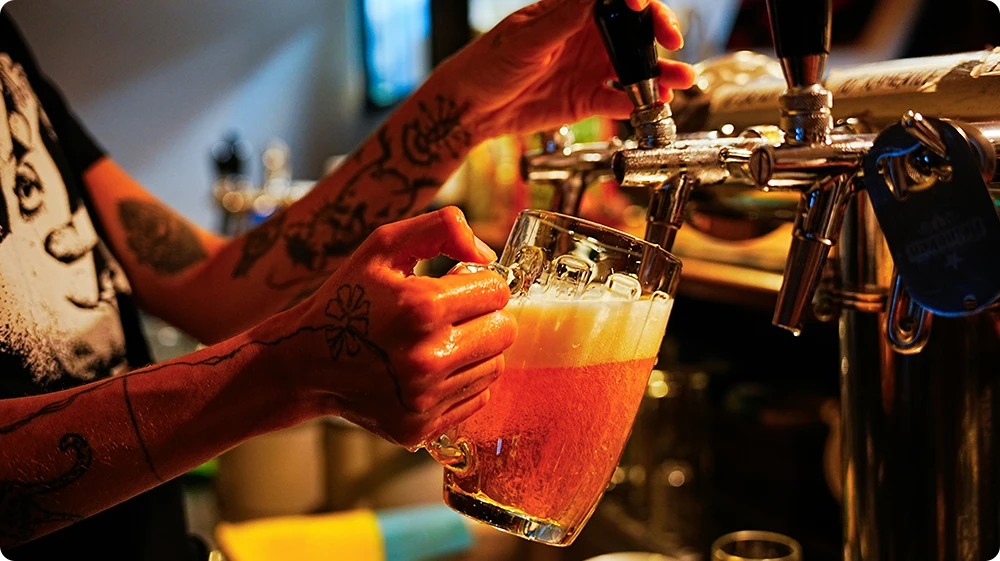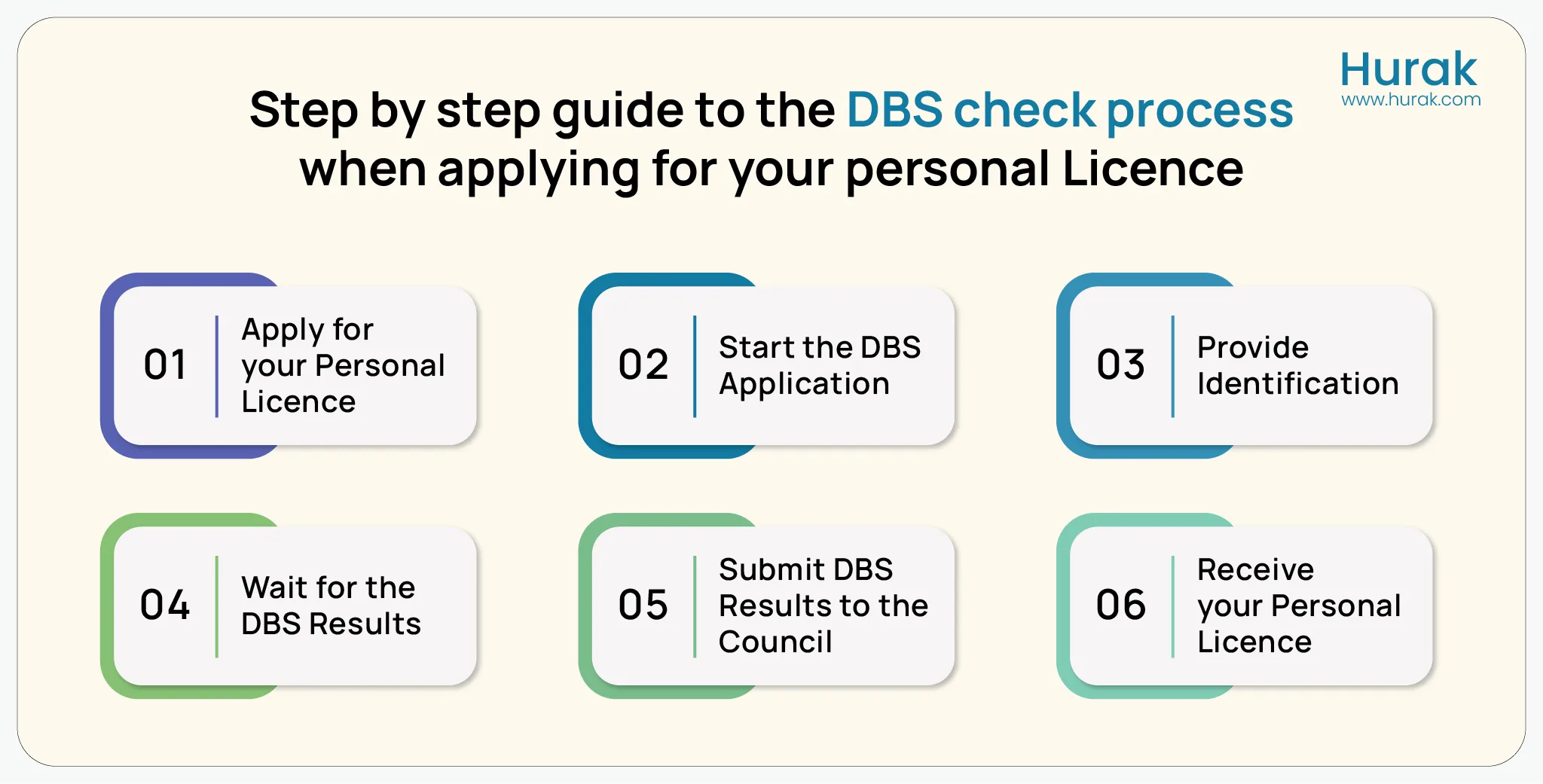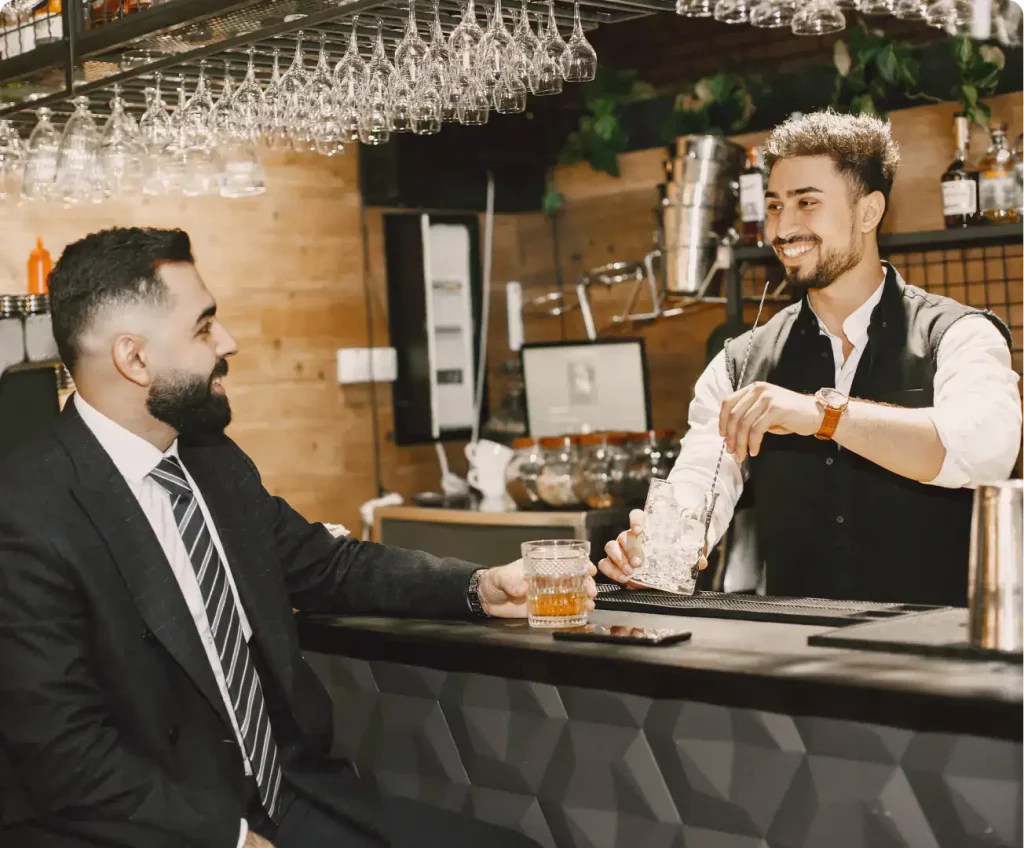If you’re planning to work in a role where you sell alcohol, whether at a bar, pub, or restaurant, then you will need a personal licence. But one of the essential steps in getting your licence is completing a DBS check. In this guide, we will walk you through everything you need to know about the DBS check for a personal licence. We’ll cover the process, requirements, and answers to frequently asked questions to help make it clear and simple for you.

What Is a Personal Licence?
A personal licence is a certification that allows you to supervise or authorise the sale of alcohol. This licence is required for individuals who want to take charge of alcohol sales, typically in venues like pubs, bars, and restaurants. If you are looking to run such a venue or work in a supervisory role involving alcohol, you must obtain this licence.
Your personal licence ensures that you understand the legal responsibilities involved in selling alcohol, helping to maintain public safety.
Want to learn more about personal licences?
If you’re still unsure about how personal licences work or what you need to apply, these guides will help you get a clearer picture:
How to get a personal licence
Difference between Personal and Premises licences
Why Do I Need a DBS Check for a Personal Licence?
A DBS check, or Disclosure and Barring Service check, is necessary for obtaining your personal licence. The DBS check is a criminal background check that ensures you don’t have any serious criminal convictions that might make you unsuitable for handling alcohol.
The check is a key part of the licensing process because it helps local authorities assess whether you are a responsible individual to manage the sale of alcohol.
The DBS Check Process for a Personal Licence
Here’s a step-by-step guide to the DBS check process when applying for your personal licence:

Step 1: Apply for Your Personal Licence
Before you can start the DBS check, you need to apply for a personal licence. You will need to submit an application to your local council. This application typically involves:
- Filling out a form
- Providing proof of identification
- Paying an application fee, which varies depending on your local council
Step 2: Start the DBS Application
Once your personal licence application is submitted, you can begin the DBS check process. You can apply directly on the official government site Gov.uk. The DBS check is often part of the overall application, or you may be required to submit a separate application for it. You will need to provide personal details, including your name, date of birth, address, and other contact information.
Step 3: Provide Identification
During the DBS check process, you will be asked to provide proof of your identity. This could include documents like:
- A passport
- A driver’s licence
- A utility bill (to confirm your address)
Make sure the documents you submit are clear and up to date.
Step 4: Wait for the DBS Results
After submitting your details and identification, the DBS will check your criminal record. The results will typically be available within a few days to a few weeks, depending on the level of check you are undergoing.
- Basic DBS check: Usually takes 7-14 days
- Standard and Enhanced DBS checks: May take up to 8 weeks
Step 5: Submit the DBS Results to the Council
Once you receive your DBS certificate, you will need to send it to your local council along with your personal licence application. They will review it to make sure you meet all the requirements.
Step 6: Receive Your Personal Licence
If your DBS check is clear and everything is in order, the council will issue your personal licence. Once received, you will be legally allowed to manage the sale of alcohol at your venue.
If that felt like a lot, don’t worry, here’s a quick visual summary of the DBS check process for a personal licence to make things simple.
Let Hurak Handle Your Personal Licence Application
Skip the paperwork.
Hurak offers a complete Personal Licence Application Service; complete the mandatory APLH training course, and we handle the DBS check, forms, and council submission, so you don’t have to. One trusted partner. Zero hassle.
Let Hurak apply for your personal licence.
How Long Does the DBS Check Take for a Personal Licence?
The DBS check can vary in time, depending on the level of the check:
- Basic DBS check: 7-14 days
- Standard DBS check: Typically takes 1-2 weeks
- Enhanced DBS check: Can take up to 8 weeks
The time frame also depends on how quickly the authorities process your application.

What Happens If You Fail the DBS Check?
If your DBS check reveals serious criminal convictions, your personal licence application may be denied. However, if the convictions are minor or from a long time ago, they may not automatically disqualify you.
Each application is assessed on a case-by-case basis. For example, a conviction may not be a barrier if you can show that you have been rehabilitated or the conviction has been spent.
Conclusion
Completing the DBS check for your personal licence is an important step in getting licensed to supervise or manage alcohol sales. By following the steps outlined in this guide, you’ll ensure that you meet the requirements and obtain your licence in a smooth and timely manner.
Ready to Take the Next Step?
If you’re looking to apply for a personal licence, Hurak can assist you every step of the way:
- Complete the Required Training: Enrol in the Level 2 Award for Personal Licence Holders (APLH) course to gain the essential qualification.
- Apply for Your Personal Licence: Use Hurak’s Personal Licence Application Service to streamline your application process.
With Hurak’s support, you’ll be well-equipped to manage alcohol sales responsibly and in compliance with the licensing laws.
FAQ
Here are a few frequently asked questions about the DBS check and personal licence process:
Can I Apply for a Personal Licence with a Criminal Record?
It depends on the nature of the criminal record. Serious criminal convictions, especially those related to alcohol, violence, or dishonesty, will likely prevent you from obtaining a personal licence. However, minor offences may not automatically stop you from qualifying.
How Long Is a Personal Licence Valid?
Once issued, a personal licence is typically valid for 10 years. After this time, you’ll need to renew it.
What If I Lose My Personal Licence or DBS Certificate?
If you lose either your personal licence or DBS certificate, you can request a replacement. Contact your local council or the DBS service to get a new copy.
What’s the minimum age to apply for a personal licence?
You must be 18 years old or older.
How long does it take to get a personal licence?
The process can take several weeks, depending on how long the DBS check takes.
Can I reapply for a personal licence if I’ve been refused before?
Yes, you can reapply after a certain period.




